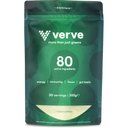Diet For Depression & Anxiety
A balanced diet can do wonders for our mood and energy levels, influencing both depression and anxiety.
- Whole Foods for a Whole Mood: Prioritising whole foods is an excellent starting point. These foods are minimally processed and include fresh fruits and vegetables, whole grains, lean meats, fish, and legumes. They provide a plethora of nutrients that are essential for brain health and can help regulate mood.
- Omega-3 Fatty Acids: Omega-3 fatty acids, found in oily fish like salmon, mackerel, and sardines, are particularly beneficial for brain health. These fats are integral components of cell membranes in the brain and play a crucial role in neuronal function.
- Fibre:: There's a strong link between gut health and mental health, often referred to as the gut-brain axis. High-fibre foods such as beans, oats, and fruits can promote a healthy gut microbiome, which in turn can positively impact your mood.
- Vitamins and Minerals: Micro Nutrients, Macro Impact B vitamins, vitamin D, magnesium, and zinc all play a role in regulating mood. Leafy greens, nuts, seeds, and whole grains are rich in these nutrients. They support brain function and neurotransmitter production, which are crucial for maintaining a balanced mood.
- The Role of Antioxidants: Antioxidants help combat oxidative stress, which is believed to be a contributing factor to both depression and anxiety. Berries, nuts, dark chocolate, and green tea are rich in antioxidants and can help protect the brain from oxidative damage.
- Hydration: Never underestimate the importance of staying hydrated. Dehydration can lead to fatigue and mood fluctuations, exacerbating symptoms of anxiety and depression.
- Moderation is Key: t’s important to limit or avoid alcohol, caffeine, and foods high in refined sugars as these can exacerbate anxiety and depression symptoms. They can disrupt your sleep, dehydrate you, and lead to mood swings.
- Putting It All Together: Incorporating a balance of these foods into your diet can be a great way to support your mental health. Consistency is also important — making gradual changes that you can maintain is better than drastic alterations that are hard to stick with.














